I was stuck in traffic in Psaila Street, St. Venera. It was 11.00am in June. I was going crazy. We had been stuck for ages. All my day’s agenda had gone to the dogs. The sun was beating fiercely through the windscreen and burning my skin, my a/c couldn’t cope. This was more of a bad dream than reality.
But reality it was, and ever since that event it had become a once too often occurrence. It was there and then that I decided to do something about it because it was occurring once too often. On this day the whole island was gridlocked. Later I learned that an accident had happened in Aldo Moro Road, Marsa. Cars were stuck in all roads of central Malta. So on that eventful day I took a detour and ordered my first scooter.
The scooter was very practical. I felt very liberated. Commutes took less than 15 minutes to most parts of the island at a moderate speed. One needed to be careful and drive defensively but that was it. What I liked most about it was not the just short transit times but the ease of parking it; it could fit anywhere.
Once you make the first step you realise that life without the car is much better. Our capitalist society invests a lot in getting each and every one of us to buy his/her first car at eighteen years of age and keep us forever chained to a car loan, large insurance payments and a continuous hydrocarbon dependency. Most people end up using the car like a wheelchair and feel unsafe without it. It is a life of learned helplessness. More than learned, it is helplessness by societal indoctrination.
We are fed one advert after another showing us the latest cars winding through empty and scenic country roads. They couldn’t be further from reality, at least locally. We are buying more SUVs than ever but not using the ‘Sports’ part of the Sports Utility Vehicle; just the ‘Utility’ bit, to go to work and ferry the kids. And there are no winding country roads, just Aldo Moro Road, Marsa and Triq tal-Balal, San Gwann. What fun!
The scooter can do an amazing 141 miles per gallon. In the local context that basically means that you forget when the last time you filled it up was. But it got me thinking whether I could do better. How could I reduce my emissions? I have been a sports cyclist for as long as I can remember, riding both off-road and on road bikes. Since I live on the periphery of Mosta, and Mosta centre is impossible for parking, I have always used the bicycle for errands in Mosta Centre. I used to do short bike trips in my area; grocer, hardware store, etc. All I needed was a backpack. I soon found that the backpack can give you a sweaty back and limits how much you can carry, particularly on longer distances. So I invested in a bike rack and pannier bags. That makes a commuters life much easier since you can carry your personal belongings, waterproofs, shopping and so on.
This year I bought a pedelec. The pedelec, I believe, could save the planet. It was difficult not to use it. It is so much fun! It flattens hills and you can do that bit more distance without arriving in a complete sweaty mess. A pedelec makes cycling accessible even for senior citizens.
I started measuring distances in kilometers, not in the time it took to arrive to my destination. It was then that I realised that most of my trips were ridiculously short! Mosta to Mater Dei Hospital: 3.98km. Mosta to Birkirkara: 4km. Mosta To Valletta:8km. I could just cycle to all these places and do my cardio workout on the way! Once you remove the blinkers from your eyes you start seeing things for what they are! Eureka! I had discovered the hydrocarbon diet!
I was seeing several things from a different perspective. The air pollution and most of all my fight against the unfairness of capitalism. If I could ditch my hydrocarbon habits I would not only stop polluting the air of my planet, but also reduce my contribution to the mighty corporations that rule the world!
I started slowly. Going to work daily by bike was easy. Shopping too. Of course cycling makes sense when you are going solo or not carrying heavy stuff. When I have to go somewhere with another family member we use the scooter. But how often do most of us have to carry someone else, or heavy objects? Most of our trips are short, less than 5km, and we do not need to carry anything. We just need to stop going to the car by default and chose the right tool for the job, or in this case the right vehicle for the trip with the least carbon footprint.
It is very easy to fall into the trap of car dependence. Everything around us works towards us becoming car dependent; adverts, society, legislation, the car industry all point you in that direction. Car adverts showing the latest cars with the latest gadgets winding through beautiful country roads free from traffic, movies feature the car as part of our daily lives. Rarely is the movie hero a cyclist or a pedestrian, apart from Don Matteo on Rai 2. Once you have children one cannot do without a car to ferry them around from home to school, back to home to basketball, religious doctrine, dance classes and so on. It rarely dawns on us that once the kids have grown up, we can do away with the car. Even our children end up trapped in the same vicious cycle; once you grow up being ferried around in a car, it is hard to think about other transport alternatives. Daddy/mummy taxi is comfy.
The more you practice the dark art of commuter cycling, the more you become adept at it. Google Maps becomes your crystal ball. You memorise good easy routes, you start noticing hills and flat roads, unsafe areas with fast moving traffic are avoided and dangerous junctions are dealt with by using pavements and pedestrian crossings. In fact you stop thinking like a car driver and develop your own routes and strategies and start seeing the car as a ball and chain around your legs; something that hampers your freedom of movement. It requires a lifestyle change and you might have to buy new clothes a couple of sizes less since the bicycle literally vaporises belly fat. You also start networking with other cyclists. We are a minority, but we are a tight knit group and help each other willingly. We share routes and cycling tips and the best gadgets to buy for our bikes.
The plain truth is that the car has made us lazy and conceited. It made us full of rights and expectations simply because we pay the car licence, but we are not leaving much for the generations that will follow us. The roads have become crowded and unsafe, full of frustrated car drivers that want to move on as fast as possible to fulfill their dreams, but are being held up by other drivers doing just the same.
The car is not as democratic as it was made out to be. It was sold to us as a means of liberation, to widen our range of travel and give us an opportunity to earn income from farther afield than our village, but it robs our fellow citizens of the space it occupies on public land, dominates the streets and makes them inaccessible to the other persons not inside a car, so a public resource such as a road becomes the sole dominion of those that possess an automobile. A question that I frequently ask is; can everyone have a villa by the sea? Is that possible? Likewise the car. There is not enough space! The planet cannot take all that burnt fossil fuel!
Roads are a public resource and need to be accessible and usable for all road users: motorised vehicles, cyclists and pedestrians. They are all citizens and they all pay tax. When we start building roads that are safe for all users we will start seeing people commuting by foot and bicycle and then we can breathe cleaner air!

